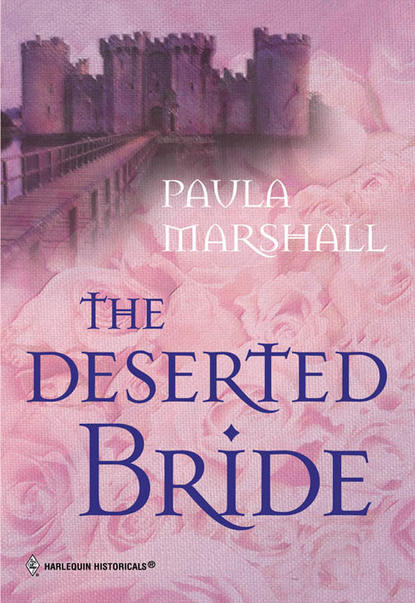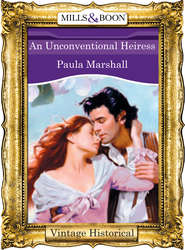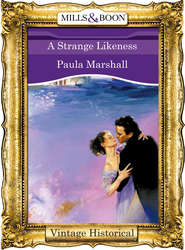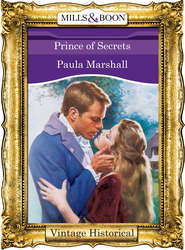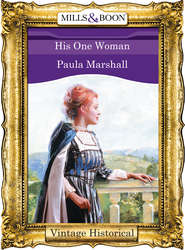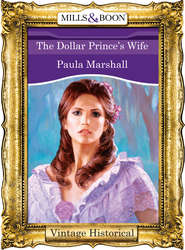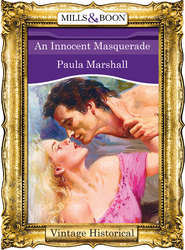По всем вопросам обращайтесь на: info@litportal.ru
(©) 2003-2024.
✖
The Deserted Bride
Настройки чтения
Размер шрифта
Высота строк
Поля
She held out a commanding hand, which Bess took, wondering what the fuss and commotion was all about. She had been living quietly at Atherington House as she had done for as long as she could remember—which admittedly at ten was not very long—until yesterday, when her father had arrived suddenly, with a trunkful of new clothes for her, and a train of visitors who had stared at her when she was brought into the Great Hall after they had dined.
Bess had never seen so many people all at once, but she had smiled at them bravely, relieved when, after being seated on her father’s knee for a little space and been fed comfits by him, she had been allowed to retire to her room.
And now, if Kirsty was to be believed, another bevy of guests had arrived. Oh, she had heard the noise just as she was going to sleep, and could not help wondering what all the excitement was about. It seemed that she was soon to find out.
For, as she descended the staircase into the Great Hall, she saw that all the servants were assembled at one end of it, and a large body of finely dressed men and women were at the other. Her father was standing a little in front of them, her uncle, Sir Braithwaite Hamilton, by his side, with a pair of attendant pages hovering in their rear.
“Come, my lady,” her father said, smiling at her as her aunt Hamilton let go of her hand and pushed her towards him, “we are to go to a wedding. In the chapel.”
At this, for some reason unknown to Bess, the company all laughed uproariously, led by uncle Hamilton. All, that was, except aunt Hamilton, who primmed her lips and shook her elegant head. Like all the guests she was richly dressed and Bess could only imagine that it was her father’s wedding to which they were going with such ceremony.
Gilbert, the Steward, importantly carrying his white wand of office, marched solemnly before them. Tib, the smallest page, with whom Bess daily played at shuttlecock, was his attendant, looking as solemn as Giles, not at all like the rowdy boy who was her shadow.
The processional walk to the chapel did not take long. Not all the guests would enter it with them, for it was small. Above the altar was a painting brought from Italy, beneath a stained glass window showing Christ in his glory. Master Judson, the priest, stood before it.
But where was the bride?
Bess looked about her. Where the bride should stand were several richly dressed men—and a tall boy who appeared to be about sixteen years old.
The boy was as beautiful as Bess was plain, and he was as fair as the god Apollo on the tapestry in the Great Hall. His hair was silver gilt, and curled gently about his comely face. His eyes were as blue as the sky on a summer morning, and the pink and silver colours of his doublet, breeches and hose not only suited him better than they suited Bess, but also showed off a long and shapely body. He resembled nothing so much as one of St Michael’s angels come down to earth to adorn it.
As she entered on her father’s arm the boy was looking away from her. The man at his side, no taller than he was, whispered something in his ear, and he turned to look at her.
His eyes widened. The handsome face twisted a little. He swung round to the man who had whispered to him and muttered, “Dear God, uncle Henry, you are marrying me to a monkey!”
No one else but Bess, and the man, heard what he said. Bess’s father was a little hard of hearing and aunt Hamilton and the train behind her were too far away to catch his words.
But Bess heard. She heard every bitter syllable. And from them she learned two things. That it was not her father who was to be married, but herself…
And the beautiful boy to whom she was to be tied for life thought that she was ugly and had not hesitated to say so to his attendant.
No! She would not be married to him. She hated him. She hated his beauty, and his unkindness. He had not meant her to hear what he had said, and he was not to know that her hearing was abnormally acute. Even so, he should not have spoken so of her, and she would not marry him, no, never! Never!
Bess wrenched her hand from her father’s grasp, swung round on him, and said, as loudly as she could, her voice breaking between shame and despair, “If you have brought me here to be married, sir, then know this. I have no mind to be married. Indeed, I will not be married. Least of all to him!”
And she sat down on the stone floor of the chapel.
Such a hubbub followed, such an uproar as had never before been heard in Atherington’s chapel. Master Judson looked down at her, astounded, nearly dropping his prayerbook at the sight of such unmannerly behaviour. The boy—and who could he be?—looked haughtily down at her as she sat there, now weeping bitter tears. He said, his voice like ice, “And I have no mind to marry you, either, but I obey my elders and betters at all times—which plainly you have never been taught to do.”
Oh, the monster! She hated him. Yes, she did. A monkey! He had called her a monkey. Well, she would dub him monster.
“Handsome is as handsome does—and says,” she flung at her as her father put his strong hands under her arms and lifted her up.
“Shame on you, daughter, for behaving so intemperately. You shall be beaten for this, I promise you. But only after you have married Andrew, Lord Exford, whom you have so vilely insulted. And since you are so free with maxims, let me remind you of one which you have forgotten, ‘Little children should be seen and not heard.”’
Sobbing now, and trying to hide her face, for she felt so humiliated that she could look no one in the eye, Bess found herself being gently lifted away from her father. It was her aunt Hamilton who set her upon her feet again, and bent down to speak softly to her so that none other should hear what she had to say.
“Come, niece. I told your father that he should have prepared you for this day, but he believed that it would be better for you not to be forewarned. See, it is a handsome boy you are marrying, and a great family. Your father has done well for you. Now do you do well for him. Dry your tears and behave as a great lady should.”
A great lady. She wasn’t a great lady. She was simply poor Bess Turville who was to be married against her will to someone who despised her.
What of that? Could she not despise him? After all, it was likely that, after today, she would not see him again until she was old enough to be truly his wife and able to bear his children.
Slowly Bess nodded her head—to her aunt’s great relief—to say nothing of her father’s. The only person not relieved was Andrew Exford himself, who had been hoping that this unseemly child’s equally unseemly behaviour might rescue him from this marriage which had been forced upon him by his uncle and guardian, the man who stood at his elbow.
It was all very well to talk of money and lands and the right to give the title of Earl of Atherington to his eldest son when the father of the heiress whom he was marrying died, but his uncle wasn’t having to marry a midget who resembled a monkey. Useless for his uncle to murmur in his ear that the child would grow and might, when older, come to resemble her handsome aunt.
As Bess already knew, blonde was beautiful in Andrew Exford’s world, and Bess was far from blonde.
But Andrew—as he had told Bess—knew his duty, and since his duty was to increase the lands and wealth of the Exfords, he would do it. But the good God knew that he would not enjoy the doing.
Her eyes dried, a cup of water brought to her to drink, her aunt’s comforting hand in hers, and Bess was ready to be married. Her father snorted at Master Judson, “Begin, man. Forget Lady Elizabeth’s childish megrims—she will soon grow out of them—and do your duty.”
Thus was the Lady Elizabeth Turville married to the most noble the Earl of Exford. Later that day, after a banquet of which she tasted nothing, for all the beautiful food put before her might as well have been straw, she was ritually and publicly placed in her husband’s bed, a bolster between them. For this short public occasion they had been granted the Great Bed of Honour in which Robert, Lord Atherington, usually slept.
Neither Drew Exford nor his bride had spoken a word to the other since the wedding ceremony. It was quite plain to Bess that he had tried to avoid looking at her at all. Bess, on the other hand, when she did allow her eyes to stray to his face, glared her hatred at him.
That he should be so beautiful—and she so plain! His beauty, which she should have joyed in, hurt her. She lay stiff in the bed, her back to him, and when, a little time later, the ritual having been performed, her aunt returned to take her away, she gave him no farewell.
Nor did he say farewell to her.
Two days later Bess had watched his train leave the House, making for the distant south which she had never visited. Before he left he had taken her small hand and placed a kiss on it. His perfect mouth had felt as cold as ice, so cold that she wanted to snatch it away, but dare not.
“I shall see you again when you are grown, wife,” were his last words to her.
Bess had nodded at him, and curtsied her farewell. She could not speak, and sensed her father’s exasperation at her silence, but for once she would not obey him. All that she could think of was that she would soon be rid of her unwanted husband, whom she would only see again when, as he had said, she would be grown, ready to be his true wife and bear his child.
Once he had disappeared down the drive, Bess knew that she must face her father’s anger at her misbehaviour. Before Andrew Exford’s arrival it would have saddened her to be at odds with him, but, all unknowingly, he had lost the power to distress her. It was, Bess thought, back in the present again, as though in one short moment in the chapel she had grown up, had learned the arbitrary nature of her life, and that her father’s love for her had its limits.
What her aunt had said was true. He should have warned her, prepared her for such a major change in her life, but he had, as he told his sister when the Exfords had left, “No time to trouble with a child’s whimwhams. She should be grateful for the splendid match I have made for her—and for Atherington.”
“And so I told her,” Mary Hamilton said, her voice sad, “but she is only a child after all, and for some reason which I cannot fathom, and which she will not confess to me, she has taken against him. Which surprises me not a little, for he is a beautiful youth, well-mannered and courteous. I would have thought she would have received him as happily as though he were a prince who had wandered out of a fairy tale, not met him with hate.”
“Hate!” exclaimed Robert Atherington. He was a choleric man, who loved his daughter but would never understand her. Since neither he nor his sister had heard Andrew Exford’s harsh words about her, Bess’s dislike of him seemed wilful and beggared belief. They were both united in that.
“Hate,” he repeated. “Well, Lady Elizabeth must learn to tolerate her groom. It will not be many years before he returns for her, and she must be ready for him.”
But Andrew Exford did not return. The years went by. Bess’s father died of an ague, leaving Bess mistress of the House and all the Atherington lands, with her uncle Hamilton as her guardian. Soon afterwards he had a fall in the hunting field, and became a cripple, helpless and confined to his room. Aunt Hamilton became her niece’s constant companion, and if Bess was a queen in Leicestershire, much as her namesake, Queen Elizabeth, was Queen of England, aunt Hamilton was in some sort her Queen Mother.
With the help of the vast staff, numbering over three hundred souls, which Robert Atherington had trained, Bess reigned over her small kingdom. Accounts and details of the estate which he owned, but never saw, were sent to her husband, and occasional monies which he needed to keep up his position at court. They were all acknowledged by his secretary, never by him. So far as Bess was concerned, he did not exist, and she had no wish to see him.
Looking back over the years to her wedding day, Bess stifled a sigh. How different her life would have been if she had not overheard Drew Exford’s sneering comment. Not that she had any quarrel with her life. There was always so much to do, so little time to do it. She had become expert in the running of her estate, and enjoyed herself mightily in performing all those duties which her husband would normally have carried out. Never having known him, she did not miss him, and hoped that he would stay away forever, as her distant cousin Lucy Sheldon’s absent husband had done.
One thing which she never did was look in a mirror. And if, occasionally, aunt Hamilton said, “Bess, my dear, you grow more handsome every day,” Bess put such an unlikely statement down to her aunt’s kindness. Her aunt had mellowed with age, and she and Kirsty were a good pair of flatterers, as Bess frequently told them.
And now Drew Exford was proposing to visit her—if she could believe him. Useless to worry about how she was to greet him. “Sufficient unto the day is the evil thereof,” she said aloud. “I’ll think about that when he arrives.”
“Damn it, Philip. Why can’t I be like you, unencumbered?”





